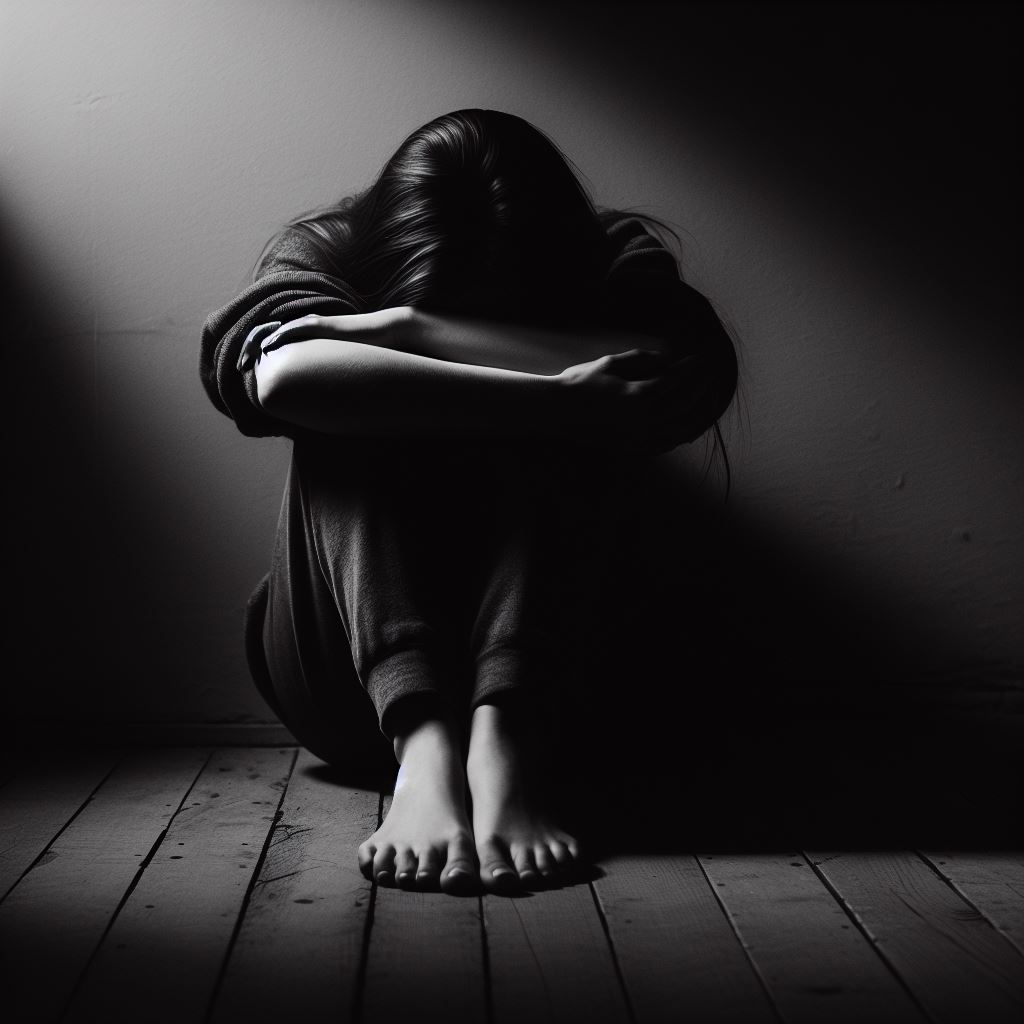“Blessed are they that mourn, for they shall be comforted.” The second Beatitude is a tough one for many people. At first glance, it seems to fall into the same cluster of hollow consolations that people default to when struggling to find the right words to comfort a grieving friend: “God works in mysterious ways,” “They’re in a better place now,” etc. We know people mean well when they say these things, but words of comfort seem so ineffective when we’re grieving. We feel like we will never heal, never be happy again. In these moments, the second Beatitude tells us, “Do not be afraid. You will be happy again. But for now, you must find the courage to fully feel your grief and mourn.”
This is the third post in a series on The Beatitudes, 8 keys to happiness that Jesus gifted to the world in his Sermon on the Mount. This series is meant to be read in order, so if you have not read the first two, I suggest you do so and then circle back to this one.
If you still feel as though, “Blessed are they that mourn, for they shall be comforted,” is the last thing you’d like to hear in moments of grief, again I would urge you, do not be afraid. By the end of this post you will understand the true wisdom and value in the words of the second Beatitude. You will:
- Learn why we must resist the urge to deny or block out our experiences of loss and pain and grief.
- Recognize how mourning can be a blessing.
- Feel empowered to emerge spiritually enriched from moments of grief in your life.
An (Un)forgettable Experience

When I was 16, I was on a dark road when I noticed a van up ahead of me, desperately trying to navigate the thick fog with its headlights. Suddenly, a chilling screech cut through the silence. The brakes of the van slammed hard, but it was a moment too late. A pedestrian was hit, soaring into the air a horrifying 15 feet. The body hit the unforgiving cement with a sickening thud. The scene unfolded with a dreadful surrealness, gruesome in its stark reality.
The woman accompanying the unfortunate man was frozen in disbelief, and then reality set in. A heart-wrenching wail pierced the air, a primal scream from the depths of her being, echoing the magnitude of her despair. It was a sound that bore the rawness of human pain—an animalistic outcry of a soul suddenly plunged into a void of grief and horror.
These are the moments when you are viscerally reminded of the unpredictability of life, the fragility of our existence, and how a single moment can turn your world upside down. Such moments are potent reminders that we don’t have as much control over the unfolding of our lives as we’d like to imagine—there are other forces operating beyond our reach, nudging us toward the realization of our inherent frailness.
I didn’t tell anyone about this event. My brain compartmentalized what had happened. After the police interview, I simply went home, said hi to my mom, and tried to forget what I saw.
The Second Beatitude: Do Not Be Afraid To Feel
Like all the other beatitudes, this one serves as a guide for navigating the complexities of human experience. This Beatitude speaks to us when we’re grieving: the passing of a loved one, a heart-wrenching personal disappointment, or simply a transition from one season of life to another. As you well know, mourning can be almost unbearable. Your heart feels like it’s been shattered into a million pieces.

So often we try to avoid these feelings, don’t we? Face it? Experience it? That’s hard work.
Just like I tried to forget the horrifying accident I witnessed, we try to avoid or rush through the pain and grief that result from deep losses in our lives.
But If there are parts of ourselves that we’re ignoring or avoiding, we’re going to be incomplete in our ability to really know what the Sacred is. The Sacred wants to reveal Itself to us because Beingness wants to become Consciousness. Like it or not, sorrow and joy are both conditions of Beingness and, therefore, of the Divine. Do not be afraid of those feelings.
I think of St Augustine when he said, “Teach me to know myself, that I might know you”. We must mourn so that we can experience the deep comfort of mystical union with the Divine. It is a comfort that is accessible in moments of mourning, but not confined to those moments. In other words, in moments of mourning, you can choose to establish a deep relationship with God that will last a lifetime.
Loss
Psychotherapist and grief advocate Megan Devine says,
“There are losses that rearrange the world. Deaths that change the way you see everything, grief that tears everything down. Pain that transports you to an entirely different universe, even while everyone else thinks nothing has really changed.”
Megan Devine, author of It’s OK That You’re Not OK
Sometimes loss can sneak up on us—and it’s not always a tragedy or the loss of a loved one. We face many forms of loss as we grapple with the realities of change. These times in our lives are often accompanied by a sense of mourning for the familiar that we’ve left behind. Maybe you’re uprooting your life to move to a new city, or maybe you’ve just retired, or perhaps, you’re stepping into the beautiful world of parenthood.
These transitions, as exciting as they may be, come with their own melancholy. It’s like bidding farewell to a dear friend, knowing that things won’t be the same again. You’ve been comfortably cocooned for a while, and now, you’re emerging into the unknown, leaving your old shell behind.
These life transitions, they’re beautiful, they’re natural, but they’re also bittersweet. They come with their own sense of grief, a grief that’s subtle, yet profound. It’s a gentle reminder of the delicate balance of beginnings and endings, joy and sorrow.
Pain And Grief
There are all sorts of reasons to push away the grief that naturally ensues from a significant loss. As Megan Devine points out, life goes on. Your world has been shattered but everyone else thinks nothing has changed. That puts pressure on you to ignore the echoes of the past and push on prematurely toward the future. Bills must be paid. Funerary arrangements must be made. You need to deal with all the laborious logistics of moving into your new house, onboarding for your new job, and so on. Or, maybe you’re just a 16-year-old kid who witnessed something she was too young to adequately process.
Grief is also lonely. In some cases, your loss may be shared by others. That helps. So does having a strong support system. But ultimately, your grief is your own, and sometimes it just feels too big for you to hold. So, you try to seal it off in some hidden corner of your heart.

Then, of course, there’s the pain. It often feels as though if you allow grief to exist, if you give in to it, the pain will become an echo chamber, amplifying your sorrow. There’s an innate tendency to push pain away, but your pain needs space. The more you can let it spread out, to expand, to unfurl in all its ugliness, the more you can BE with it. And when you can simply witness the hurting animal within you, and allow your pain to exist, it somehow softens.
Mourning As A Blessing
You can’t fix your pain because it’s not a deficiency. It’s not a problem to be fixed or a wound to be healed. It’s a testament to your capacity to love. Here in this moment of surrender, when all you can do with the energy you have left is pray, “God, help me,” something remarkable happens. Your prayer is a catalyst. It’s as if a channel opens, and an inflowing river of grace streams into your heart. It’s God, softly soothing the fragments of your brokenness. When this happens, it feels like a miracle. You feel seen and loved, through and through by the Universe.
To capture this idea, Dave Brisbin expertly translates the second Beatitude from Greek to English as such: “Fortunate are those who lament, for they will hear the voice of God calling them back home.”
You’re blessed when you fear you’ve lost what is most dear to you. Only then can you be embraced by the One who truly is most dear to you. The blessing is that when you mourn, when you’re present to your grief, comfort will come.
As it says in the Qur’an, “[God] will surely test you with something of fear and hunger and a loss of wealth and lives and fruits, but [will] give good tidings to the patient.” (2:155)
Do Not Be Afraid
When I was in my mid-twenties, I came home one day to find my boyfriend’s things were gone. As soon as it clicked what was happening, I collapsed to the floor and found myself screaming in sorrow. I recoil at that memory because I didn’t know my body could make those sounds. It felt as though I was having an exorcism.
I was heartbroken, but I wasn’t crying about my ex. I was remembering the wailing woman from the accident, the raw grief that possessed her, and my overwhelming feeling of helplessness as a witness, all of which I had ignored at the time of the accident because I was afraid of what would happen if I had acknowledged those feelings. Now, suddenly, they came rushing back and could no longer be suppressed.
The point is, behind all those things that fuel our efforts to shun our pain and grief is one common factor: fear. We are afraid of our lives getting derailed by giving too much attention to our losses; afraid of being crushed under the weight of a grief that’s too heavy to hold; and afraid of being consumed by the fiery presence of pain.
But fear is a completely flawed motivator, right? It’ll lead us to do desperate things or betray our integrity. That is why the phrase “do not be afraid” is one of the most repeated phrases in the Bible, if not the most.
Exchanging Fear For Compassion
When you’re afraid to confront your pain and grief, you’re denying yourself the opportunity of a comforting encounter with the Divine. But you’re also denying yourself the opportunity to help comfort others. You see, the Latin root of the word “compassion” means “to suffer with another,” and that’s exactly what our experiences with grief allow us to do.
This is expressed beautifully by the Buddhist nun Pema Chödrön in her explanation of the Buddhist concept of “Bodhicitta” (the mind aimed at awakening):
“An analogy for bodhichitta is the rawness of a broken heart. Sometimes this broken heart gives birth to anxiety and panic; sometimes to anger, resentment and blame. But under the hardness of that armor there is the tenderness of genuine sadness. This is our link with all those who have ever loved. This genuine heart of sadness can teach us great compassion. It can humble us when we’re arrogant and soften us when we are unkind. It awakens us when we prefer to sleep and pierces through our indifference. This continual ache of the heart is a blessing that when accepted fully can be shared with all.”
Pema Chödrön, Buddhist nun
Blessed Are The Comforted, For They Shall Become The Comforters
“Blessed are they that mourn, for they shall be comforted.”

Sometimes, we are the ones who need comfort; but sometimes, we end up being the comforter. This, in its truest essence, is compassion. And, according to the Bhagavad Gita, “When a person responds to the joys and sorrows of others as if they were his own, he has attained the highest state of spiritual union.”
The mystical life is all about getting closer to the Divine so that we can carry out the Will of God in our lives. When we treat mourning as an invitation from God to return home, we find comfort. It gets us through our pain and grief. But more importantly, it infuses us with a greater depth of compassion, or bodhichitta—we have been granted the wisdom, courage, and strength to deliver that same blessing of comfort to those in need. And then it becomes clear to you why this second Beatitude is a blessing.
The Love that fuels your acts of service, which are in turn fueled by your experiences with grief and mourning, is the key to true happiness.
Frequently Asked Questions
The second Beatitude means that those who allow themselves to mourn rather than repress or deny the grief they feel will be comforted at the deepest level because such a state of vulnerability cracks you open in a way that allows you to connect with the divine.
It is often said that the phrase “do not be afraid” appears 365 times in the Bible. While this is not literally true, it is one of the most repeated phrases in the Bible, underscoring the importance of its message.
Jesus says “do not be afraid” because he knows that it is in moments of strife, like grief and mourning, when we are closest to God. Rather than shying away from the things we fear most, we should embrace them as opportunities for connecting more deeply with the divine. It’s not easy work, but it is rewarding to the highest possible degree!
To mourn means to allow yourself to feel grief and the pain of loss. It can be the loss of a loved one or the loss of some part of yourself or something else entirely. Mourning means allowing yourself to fully feel these things so that you can let them go on some level and move forward in life.
Paragraph
Paragraph



